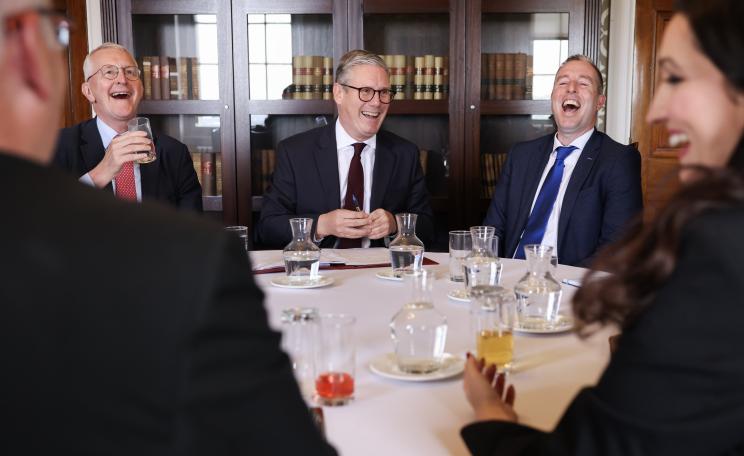My inability to cope with metric measurements is a source of endless amusement to my children. My second son, who is now studying medicine at Cambridge, has to be called in on an annual basis to measure the dried fruits for the Christmas puddings, while my daughter has recalibrated my cake recipes by working out that an egg, which I still think of as 2 oz., actually weighs 100g. If economics must be, as it would seem from the academy, a matter of numerical precision, then you will have to count me out.
Measurements originally derived from our interaction with the world, being based on specific distances of the human body. The earliest recorded unit of the length was the ancient Egyptian cubit, which is the length from the elbow to the tip of the middle finger. In the Middle Ages cloth was measured in spans and bolts, which were both derived from the ell. As its name suggests, this measured the distance between two elbows, hence the (later corrupted) expression ‘Give him and inch and he’ll take an ell’. Yet more fun was to be had with measures of ale, which include pins, firkins, kilderkins, puncheons, and hogsheads - all precisely defined in terms of each other and set down in local and national statutes.
Divorced from the everyday
I will spare you any more of my whimsical Medievalist eulogising by inviting you to imagine how this human-scale system of measurement mediated the relationship between ourselves, the natural world and the goods we crafted and exchanged from its materials. And how that was blown apart by the advent of the metre: an intellectual unit of measure entirely abstracted from human experience that could only have had its origin in the dualism that gained ascendancy during the Enlightenment. Born of a brain in a vat and imposed by a tyrant on a horse, the metre is defined as one ten-millionth of the distance from the Equator to the North Pole as measured by its passage through Paris. No wonder it has taken so long to be accepted in Britain.
The metric system has developed into the SI system of globalised units of measurement that underpin our sophisticated science and technology. In this realm I have no quarrel with it, but when it comes to weighing apples in a local market I would happily have gone to court to defend the metric martyrs such as Steve Thorburn, who had the scales seized from his Sunderland market stall when he was found daring to sell bananas by the pound.
Barrel of fish
Perhaps the most serious of these abstractions is that of money. The name of the ancient Spanish currency, the peso — which has numerous international derivatives including the Spanish peseta that was replaced by the euro, and many Latin American currencies — is derived from the word for weight. The word ‘sterling’ is similarly linked to the weight of a barrel of easterling herrings sold in the London fishmarkets — the basis of Baltic trade. This derivation is unsurprising if you think of money in its original role of underpinning the relative values of goods to facilitate their exchange.
The design of contemporary currencies — with their mystical allusions to power and authority — is symptomatic of the divorce between the monetary economy and the real economy of people and stuff. How different are the designs and associations of the new spate of community currencies. My own, the Stroud pound, is also called the teasle, a direct allusion to the role the plant played in the local woollen cloth industry, while the Brixton pound is redolent of the diversity of life in that more urban community. These images and associations illustrate the objective of local money systems: to rebuild the links between communities and their natural environment through goods produced with local resources and skills.
Great detail and on weight and measures — and much entertainment — to be found here
| READ MORE... | |
 |
HOW TO MAKE A DIFFERENCE Climate change needs persuasive art, not propaganda What is art's role in raising awareness of climate change? In this extract from her passionate, poetic essay 'The Far-seers of Art', Jay Griffiths explains why culture without nature is as good as worthless |
 |
HOW TO MAKE A DIFFERENCE Beyond white middle class environmentalism Akashi is a grassroots campaign that gives a bigger voice to black and minority ethnic groups on climate change issues |
 |
INTERVIEW Erik Assadourian: our society needs some serious cultural engineering The editor of the influential Worldwatch 'State of the World' report on the best ways to transform cultures from consumerism to sustainability |
 |
COMMENT No-one put Keats on a well-being course and a dose of Prozac An obsession with happiness science is just the chemistry set for a new opiate of the masses. Give me misery, says Tom Hodgkinson |








